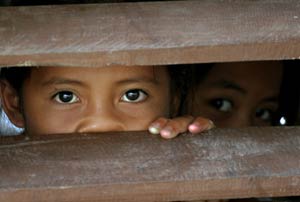Right to Protection and Social Security
Social security is a fundamental human right recognized by most international human rights instruments, reinforced by regional agreements and increasingly reflected in domestic legislation. Encouragingly, requirements to respect, protect and fulfil this right in the design, implementation and evaluation of social protection policies and programmes are affirmed and broadly recognized.
What is the right to Social Security?
Everyone has the right to social security.Through the provision of social welfare or assistance, States must guarantee protection to everyone, particularly the most vulnerable members of society, in the event of unemployment, maternity, accident, illness, disability, old age or other such life circumstances. States must progressively realise the right to social security through measures to offer protection, through cash or in kind, which enables individuals and families to acquire at least essential health care, basic shelter and housing, water and sanitation, food, and the most basic forms of education.
Due to its redistributive effect, the right to social security is an important factor in social inclusion and cohesion, and poverty reduction. Social security must be provided on a non-discriminatory basis, though the means of financing and providing society security will vary from State to State. \
The right to social security is recognized as a human right and establishes the right to social security assistance for those unable to work due to sickness, disability, maternity, employment injury, unemployment or old age. Social security systems provided for by states consist of social insurance programs, which provide earned benefits for workers and their families by employment contributions, and/or social assistance programs which provide non-contributory benefits designed to provide minimum levels of social security to persons unable to access social insurance.
The Universal Declaration of Human Rights recognizes the right to social security in articles 22, which states that:
The Committee on Economic, Social and Cultural Rights (CESCR) recognizes that some aspects of respecting, protecting and fulfilling economic, social and cultural rights may require financial resources that are not always immediately available to all States, and allows for “progressive realization”, meaning the rights may be realized gradually.
This is qualified by expectations that the maximum resources available to the state will be allocated accordingly and that retrogressive measures will not be taken intentionally, as well as other obligations of immediate effect relating to non-discrimination and minimum levels of enjoyment of human rights required to maintain inherent human dignity. In this way, the human rights framework seeks to distinguish between an inability and an unwillingness to meet the agreed responsibilities. Failure to meet the obligations of conduct discussed below may amount to a violation of the obligations assumed by signing the ICESCR.
What is the Human Right to Social Security?
The right to social security ensures that everyone, regardless of age or ability to work, is guaranteed the means necessary to procure basic needs and services. Several key human rights principles are fundamental to guaranteeing the right to social security:
Comprehensiveness: Social security implicitly covers all the risks involved in the loss of means of subsistence for reasons beyond a person’s control.
Flexibility: The retirement age should be flexible, depending on the occupations performed and the working ability of elderly persons, with due regard to demographic, economic, and social factors.
Non-discrimination: Social security must be provided without discrimination (in intent or effect) based on health status, race, ethnicity, age, sex, sexuality, disability, language, religion, national origin, income, or social status.
The Right to Social Security is protected by:
- Article 22 of the Universal Declaration of Human Rights
- Articles 9 of the International Covenant on Economic Social and Cultural Rights
- Articles 26 of the Convention on the Rights of the Child
- Article 5 of the Convention on the Elimination of All Forms of Racial Discrimination
- Articles 11 & 14 of the Convention on the Elimination of All Forms of Discrimination Against Women
- Article 16 of the American Declaration on the Rights and Duties of Man
The Right to Protection
Discrimination increases the risks of abuse
Discrimination based on sex, social origin, ethnicity or disability is also a major factor in child abuse. Every day, millions of children around the world are discriminated against; innocent victims of humiliating, offensive insults or, worse still, acts of violence. In an incredibly vulnerable state these children have no one to confide in and cannot defend themselves.
 Discrimination also gives rise to the exploitation of children. The worst forms of labor are generally forced upon children from minority groups or disadvantaged backgrounds.
Discrimination also gives rise to the exploitation of children. The worst forms of labor are generally forced upon children from minority groups or disadvantaged backgrounds.
 Discrimination also gives rise to the exploitation of children. The worst forms of labor are generally forced upon children from minority groups or disadvantaged backgrounds.
Discrimination also gives rise to the exploitation of children. The worst forms of labor are generally forced upon children from minority groups or disadvantaged backgrounds.
Such children, often excluded and marginalised, have to contend with indifference and are more likely to be badly treated. Furthermore, children with disabilities, due to their vulnerability, are particularly at risk of physical violence and sexual abuse.
Violence and exploitation against children
 Between 500 million and 1.5 billion children are subjected to violence each year. In addition, each year, around 150 million girls and 73 million boys are victims of sexual abuse. The majority of abuse cases take place within the family circle or when the children are victims of child labor exploitation.
Between 500 million and 1.5 billion children are subjected to violence each year. In addition, each year, around 150 million girls and 73 million boys are victims of sexual abuse. The majority of abuse cases take place within the family circle or when the children are victims of child labor exploitation.
Child labor exploitation puts children in the hands of unscrupulous employers who do not hesitate to charge them with extremely difficult and dangerous tasks, involving carrying heavy materials or coming into contact with harmful products. The worst forms of child exploitation similarly expose them to degrading activities such as prostitution and pornography.
The loss of a protective environment
In crisis situations, protective measures are often put on hold. Thus, when armed conflicts and natural catastrophes arise, children do not benefit from a protective environment that guarantees their well-being. They generally suffer from a lack of nutrition, water or essential care.
Furthermore, emergency situations force adults to concentrate on resolving the crisis, and the children’s needs are subsequently neglected. As a result, children feel less secure and more vulnerable to violence and the various forms of exploitation.
Interventions to Protect Human Rights
To protect human rights is to ensure that people receive some degree of decent, humane treatment. Because political systems that protect human rights are thought to reduce the threat of world conflict, all nations have a stake in promoting worldwide respect for human rights.[8] International human rights law, humanitarian intervention law and refugee law all protect the right to life and physical integrity and attempt to limit the unrestrained power of the state. These laws aim to preserve humanity and protect against anything that challenges people's health, economic well-being, social stability and political peace.
The right to social security is the right to access and maintain benefits, whether in cash or in kind and without discrimination in order to secure protection.
Everyone, as a member of society, has the right to social security and is entitled to realization, through national effort and international co-operation and in accordance with the organization and resources of each State, of the economic, social and cultural rights indispensable for his dignity and the free development of his personality.
Reference list
Maise, M., (2004)
Graham, A., (2014)
Children's Right Alliance( 2015)



